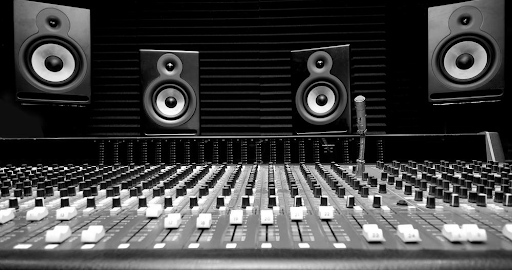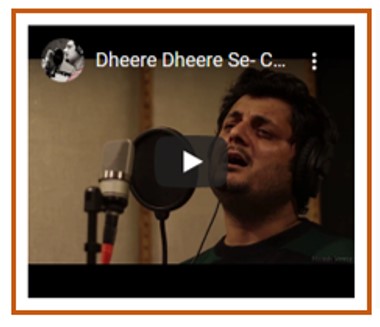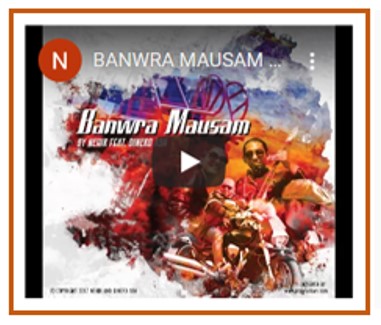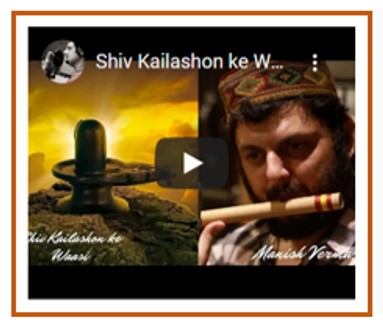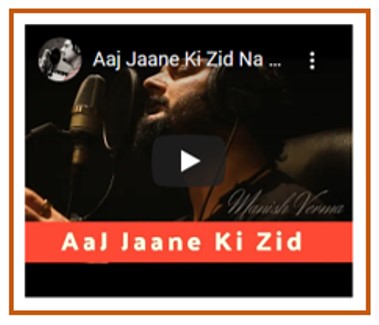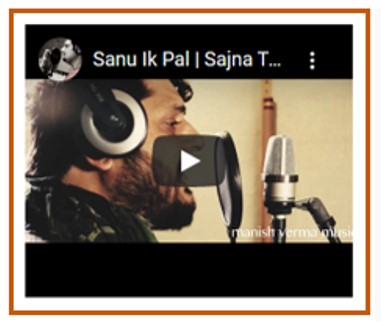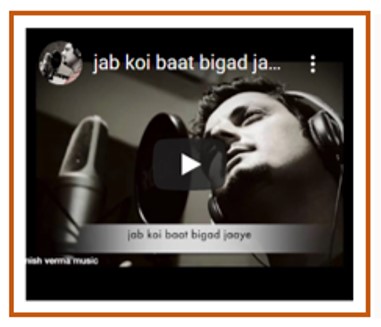Sound Engineering Course In Gurgaon
Course Details
- Course Duration - 3 Months
- No. of Classes - 24 Classes (Twice A Week)
- DAW Used - (Logic Pro/Cubase/Nuendo)
- Course Fees - Rs. 50,000/-
Bodhisatvas music productions offers best sound engineering course in Gurgaon, we have designed our sound engineering course for our students to give profound understanding of sound engineering for film and non film music. Our sound engineering classes consist of theory and practical sound engineering concepts and we give various assignments and home work to our students so that they can get practical experience to work on their own live projects and come up with doubts, which will further enable them to understand the fundamental concepts of sound engineering. We provide both offline & online sound engineering course for our students.
- Understanding Equipment Flowchart
- System Calibration
- Introduction To DAW
- History Of Recording
- Understanding Multi Track Recording
- Understanding Soundcard
- Understanding & Managing Input & Output
- Tips Of Recording Vocals
- Understanding Bit Depth – Sample Rate
- Using Low Latency Mode
- Setting Up Tracks
- Understanding Mono & Stereo
- Recording Vocals, Understanding Headroom
- Tricks Of Recording Vocals On Karaoke
- Understanding Auto Punch
- Understanding Multi Track Recording & Joining Them
- Understanding Acoustic Instruments & Recording Them
- Understanding Zoom & Its Shortcuts
- Understanding Strip Silence
- Recording Electric Guitar Normally
- Understanding Tube & Solid State Amplifiers
- Recording Electric Guitar Using Amplifiers
- Understanding LCD Display
- Understanding & Organizing Toolbars
- Understanding Time Signature, Tempo, Bars & Beats
- Finding Tempo & Scale Of Your Composition
- Setting Tempo & Scale As Per The Requirement Of Composition
- Recording Rough Vocals
- Understanding Metronome & Its Settings
- Understanding Snap Modes Bar, Beats & Divisions
- Recording And Working With Parts Of Songs
- Recording Song Formula And Its Application
- Identifying Parts Of Song And Restructure
- Understanding Editing Various Tools & Its Application
- Understanding Importance Of Command Click Tools
- Understanding & Editing Regions & Loops In File Editor
- Understanding & Using Loop Browser Functions
- Personalizing The Loop Browser
- Working With Loops Outside Loop Browser
- Drummer Plugin
- Understanding Drummer Interface
- Drummer Profile And Presets
- Changing Drum Kits & Tuning Drum Kit Parts
- Customizing Kick, Snare & Percussion
- Using Drums With Other Instruments
- Understanding Swing And Fills
- Changing Details – Pull And Push Feel, Ghost Notes
- Setting Hi Hat Open, Close & Automatic
- Making Drums For Full Songs, Intro Signature Chorus Interlude Rap
- Understanding Ultra Beat Plugin
- Understanding & Using Various Presets Sequences
- Editing And Working With New Sequence
- Changing Beat Length
- Dragging Patterns To Arrange Windows
- Changing Velocity Of Individual Notes
- Making Beat Of A Track Using Song Formula & Parts Of Song
- Understanding Sampling
- Understanding Hit Points
- Making Fresh Loops
- Making Effect With Sampling
- Making Full Project Based On Loops
- Arranging Beats Using Sampling
- Arranging Bass, Synth, Piano, Guitars Etc.
- Making Melody Using Cycle Record Before Writing Lyrics
- Making Another Melody After Writing Lyrics
- Recording Vocals
- Volume Leveling And Finishing The Project
- Understanding Flex Pitch
- Tuning Vocals With Flex Pitch
- Using Scales Quantize & Pitch Correction
- Adjusting Pitch Drift & Gain
- Increasing & Decreasing Vibrato Of Each Note
- Convert Audio To Midi Using Flex Pitch
- Understanding VST
- Difference Between Audio & Midi
- Recording A Midi Instrument Using Midi Keyboard
- Recording A Midi Instrument Using Musical Typing
- Time & Scale Quantizing MIDI Performance
- Understanding Piano Roll & Octaves
- Adjusting Gain Using Velocity
- Using Velocity Effects In Step Editor
- Understanding Editing & Command Click Tool
- Making Full Project Based On MIDI
- Understanding MIDI Loops & Library
- Editing MIDI Loops
- Programming Beats Of A Song Using Musical Typing Or MIDI Keyboard
- Understanding Scales In Music
- Applying Scales In Programming
- Programming Bass With MIDI Keyboard
- Editing Bass On Piano Roll
- Programming Synth With MIDI Keyboard
- Editing Synth On Piano Roll
- Understanding Chords Formation Using Scales
- Programming Guitar Chords With MIDI Keyboard
- Editing Guitar Chords On Piano Roll
- Programming Guitar Lead With MIDI Keyboard
- Editing Guitar Lead On Piano Roll
- Programming Piano Chords With MIDI Keyboard
- Editing Piano Chords On Piano Roll
- Programming Piano Lead With MIDI Keyboard
- Editing Piano Lead On Piano Roll
- Adding Effects Riser, Boomer Etc.
- Recording Final Vocals
- Fine Touching All Tracks
- Volume Leveling Of All Tracks
- Bouncing In Place All MIDI Files
- Understanding Automation
- Changing Volume In The Tracks Using Automation
- Making Effect Using Volume Automation
- Understanding Panning
- Balancing Tracks Using Panning
- Using Automation In Panning
- Understanding Mixing Environment
- Understanding How To Start A Mix
- How Make Project Ready For Mixing
- Starting Mixing The Project
- Understanding Dynamics
- How To Make Tracks Dynamic Ready
- Making Drum Rhythm Section Punchy
- Understanding Auxs, Buses & Sends
- Understanding Time Based Effects & Applying Them
- Mixing Vocals
- Cut Through Vocals Techniques
- Fixing Rhythm Mismatch
- Fixing Pitch Mismatch
- Understanding Auto Tune & Its Use
- Creative Mixing
- Creative Panning
- Creative Automation
- Finalizing The Mix For Mastering
- Understanding Mastering
- Boosting More Dynamics
- Mastering The Mix
- Mastering Template
- Click Here To Whatsapp Us
- +91 9999574154
- Email Us
Sound Engineering Course Content
How To Join The Course - Offline or Online
We Start Fresh Batch on 1st Day of Every Month. Choose any of the following options to enroll for the sound engineering course in Gurgaon. Charges are same for online and offline courses. The benefit of joining online course is that you can save your travelling time if you join our online course.
Enroll Online
Click the pay button and you will be enrolled for the sound engineering course once you make the successfull payment. You can pay using Credit Card, Debit Card, Wallets, UPI, Paypal Etc.
Call/Whatsapp Us
You can call or whatsapp us on this number to know more about the course and enroll for the course.
Visit The Institute
Call or whatsapp us to book an appointment to visit the institute to enroll for the course.
Email US
You can enroll for the course by emailing us and we will send you the details to enroll for the course.
Sound Engineering Course Work Opportunities
After Doing Our Sound Engineering Course In Gurgaon You Can Start Your Own Recording and Mixing Mastering Studio Or Become A Freelancer Sound Engineer Or Do Job At Recording Studios, Radio Stations, Production Houses, Record Labels As:-
Studio Engineer
A Studio Engineer works within a studio facility, either with a producer or independently.
Recording Engineer
A Recording Engineer is the one who guide and help artists to records sound as per the studio standard ensuring rich input signal for recording.
Assistant Engineer
An Assistant Engineer often employed in larger studios, allowing them to train to become full-time engineers. They often assist full-time engineers with microphone setups, session breakdowns and in somecases, rough mixes.
Mixing Engineer
A Mixing Engineer creates mixes of multi-track recordings. It is common for a commercial ecord to be recorded at one studio and later mixed by different engineers in other studios.
Mastering Engineer
A typically the person who mixes the final stereo tracks (or sometimes just a few tracks or stems) that the mix engineer produces. The mastering engineer makes any final adjustments to the overall sound of the record in the final step before commercial duplication. Mastering engineers use principles of equalization and compression to affect the coloration of the sound.
Live Sound Engineer
A Engineer dealing with live sound reinforcement. This usually includes planning and installation of speakers, cabling and equipment and mixing sound during the show. This may or may not include running the foldback sound. A live/sound reinforcement engineer hears musical material and tries to correlate that sonic experience with system performance.
Foldback or Monitor Engineer
An Engineer who foldback sound during a live event. The term "foldback" is outdated and refers to the practice of folding back audio signals from the FOH (Front of House) mixing console to the stage in order for musicians to hear themselves while performing. Monitor engineers usually have a separate audio system from the FOH engineer and manipulate audio signals independently from what the audience hears, in order to satisfy the requirements of each performer on stage. In-ear systems,
digital and analog mixing consoles, and a variety of speaker enclosures are typically used by monitor engineers. In addition most monitor engineers must be familiar with wireless or RF (radio-frequency) equipment and must interface personally with the artist(s) during each performance.
Systems Engineer
An Engineer responsible for the design setup of modern PA systems which are often very complex. A systems engineer is usually also referred to as a "crew chief" on tour and is responsible for the performance and day-to-day job requirements of the audio crew as a whole along with the FOH audio system. This is a sound-only position concerned with implementation, not to be confused with the interdisciplinary field of system engineering which requires a college degree.
Student's Work
Check Out How Our Students Are Making Music After Successfully Completing Music Production Course.
